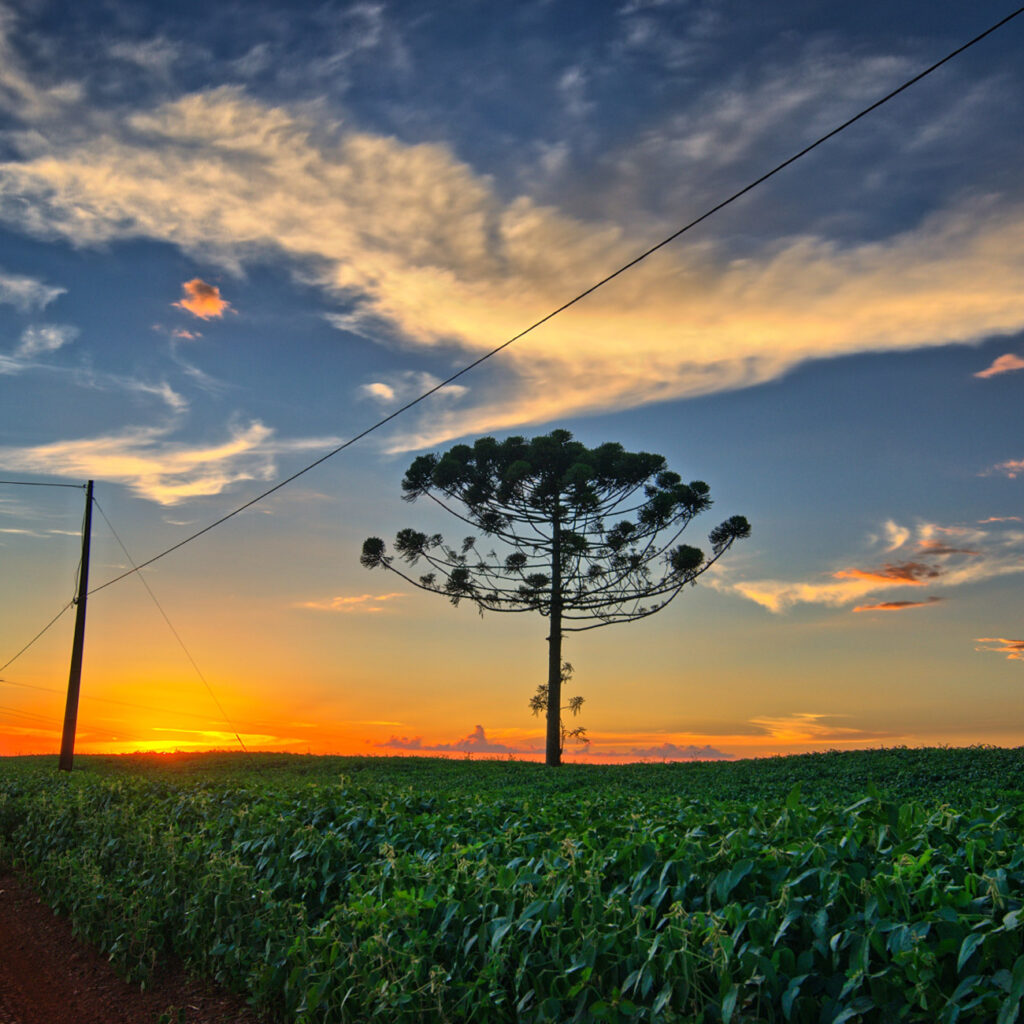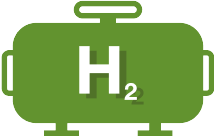Environmental, Social
and Governance – ESG
Environmental, Social
and Governance – ESG
PARANÁ IS THE 2nd BEST STATE IN ESG POLITICS ACCORDING TO THE 2025 STATE COMPETITIVENESS RANKING
ESG (Environmental, Social, and Governance), represents not only multiple facets of sustainability, but also contemplates a combination of strategies that aim to balance the short-term financial interest with larger concerns related to the environment, to society and to business ethics.


PARANÁ ESG COMMITTEE
The social, environmental and governmental good practices are stronger each day in the global agenda. In Paraná, they are a policy of the State!
In 2021, the State Government took charge with the creation of the first Public-Private ESG Committee in Brazil – with a structure that seeks actions that guarantee legal and ethical practices in the productive sphere, as well as attending the population, the focus of any type of public management.
ENVIRONMENT
Meio-ambiente
Paraná is the most sustainable state in Brazil
1º
Paraná has the highest agricultural
potential in the country
According to IBGE, 2022
Líder
National leader in the
production of organic food
Copel aims to reach 100% until 2030, through the use of alternative sources of energy, such as wind and solar. Through research and development projects, it also seeks alternatives such as green hydrogen.
Copel is investing in order to modernize and automate the energy network in Paraná according to the smart cities/smart grid concept.
RenovaPR offers interest subsidies for financing renewable energy generation systems in rural areas. The financing (around R$ 1.54 billion) has supported nearly 10,000 approved projects backed by RenovaPR, mainly focused on solar panels and biodigestion systems, with a contribution of R$ 260 million from the State Government for interest rate equalization.
Until December 31, 2022, the state will pay 100% of the interest in the case of renewable energy in the countryside
PARANÁ HAS 71 PRESERVATION UNITS, 29 OF WHICH ARE OPEN TO PUBLIC VISITATION
THERE ARE ALSO 320 PRIVATE NATURAL HERITAGE RESERVES
COVERING 55,371 HECTARES
Ensuring the protection of Paraná’s natural resources; creating environmental protection areas and restoring degraded areas.
Environmental monitoring, controlling and fighting forest fires and training volunteer firefighters. Currently, 220 firefighters are registered with Previna and are covered by life insurance.
Restoring and increasing forest cover in the state. Between 2019 and 2022, more than 6 million seedlings of native flora were planted. The program also installs beehives in green areas across the state.
– Incorporating conservation of endangered species in
sectoral policies;
– Combating hunting, fishing, illegal extraction and trafficking of wild species;
– Early warning and detection of species.
More than 70 priority actions are being developed.
Established between the Water and Land Institute (IAT) and the Jaguar Breeding and Research Association, it studies the reintroduction and population reinforcement of native species.
It is a participatory management tool for planning and prioritizing actions for the conservation of big cats, especially the jaguar and puma, which are in danger of extinction.
A set of management actions comprising:
– Free Flight Program – ARAS and ASAS;
– Pro-Fauna Alliance Project;
– Friend of Fauna Seal;
– Wild Fauna Support Centers (CAFS) and Wild Animal Screening Centers (Cetas);
– Front of Experts in Wild Animal Recognition (FERAS).
Among the highlights of this set of actions are the assistance to approximately 35,000 victimized wild animals, between 2019 and 2022, and the creation of a Victimized Fauna Management Committee (CGFAU), which works to combat trafficking and illegal trade in animals.
An effort between the Beach Monitoring Project (PMP/PR), Sedest, the IAT, Ibama and the municipalities along the coast of Paraná to attend to, treat and dispose of marine animals that arrive on the beaches of the coast of Paraná. In eight years, 16,000 animals have been treated. The project also assesses the presence of pathogens and contaminants on the state’s coastline.
The partnership between Sedest, the IAT and the Superintendence of Fisheries and Hydrographic Basins seeks to improve the environmental quality of the aquatic ecosystems in the state’s 16 hydrographic basins, while also guaranteeing the quality of life of the populations that depend on resources from these environments. The project consists of reinforcing the population of native fish, combined with planting native species in the areas surrounding water bodies. In 2022, the project exceeded the release of 2.6 million native fish.
It is a public policy instrument that transfers financial resources to municipalities that have Conservation Units or water sources for supplying neighboring municipalities in their territories. The incentive promotes an increase in protected areas and an improvement in the management of natural heritage in Paraná.
Among the categories of Conservation Units, a very interesting one is the Private Natural Heritage Reserve (RPPN), because this private reserve, created by the will of the owner, has perpetuity: once created, it cannot be undone, even if the area changes ownership.
Because of this particularity, Paraná seeks to encourage the creation and maintenance of RPPNs through the Payment for Environmental Services to Private Natural Heritage Reserves (PSA/RPPN), which provides economic incentives to their owners.
In 2022, Paraná, through the Ecological ICMS
and the PSA Program
511 mi
transferred over
R$511 million
215
distributed among
215 municipalities
+ 2 mi
guaranteeing the protection of
2,381,947 hectares of biodiversity
+11 mil
in addition to 11,543.45 ha
of water sources
ENVIRONMENTAL EDUCATION
The State Environmental Education Program (PEEA-PR) aims to develop environmental awareness in different social spheres, highlighting the interdependence between nature and society. The program is a document for planning strategies that lead to new environmental education plans, projects and actions to be implemented in the different spheres of society. The PEEA is developed by the State Secretariat for Sustainable Development and Tourism (Sedest), and can be accessed online
The technical course integrated into high school, “Bioeconomy Technician”, brings together skills focused on sustainability and business. The course is a pioneer in Brazil and will be offered in 2024, initially in the coastal region of the state. The aim is to train students in sustainable management and entrepreneurship. The curriculum was developed by the State Department of Education in partnership with Invest Paraná.
The PAE provides for a series of actions, tools and targets to be met by 2030, with a view to reducing carbon emissions in agriculture, achieving more sustainable agriculture and contributing to reducing climate change.
One of the main activities is to raise awareness among producers about decarbonizing production processes. With the PAE, the Government of Paraná has reaffirmed its commitment to helping consolidate the Federal Government’s ABC+ Plan.
According to the 2022 IBGE

With the intention of making use of waste from agricultural production (mainly pork and poultry), the state is demonstrating its commitment to decarbonizing (carbon fixation) agricultural production by investing in technologies for reusing and making use of waste that has the potential to emit greenhouse gases into the atmosphere.

The Government of Paraná, through the State Agriculture System (Seagri), is working on a public policy for the use of agricultural waste to produce biogas and biomethane.

Hydrogen is considered the fuel of the future and the same biogas/biomethane production route is also suitable for producing green hydrogen. The policy will make Paraná one of the most favorable Brazilian environments for the production of green hydrogen, the name given to hydrogen produced with electricity from organic sources, clean processes and the use of renewable energy. To this end, Paraná’s biomass, especially from the animal protein production chains, is a source of significant renewable volume.
ParanaClima is updating its Greenhouse Gas (GHG) Emissions Inventory, which uses data from 2005 to 2019 as a reference, i.e. a 14-year history for Paraná.
One of ParanaClima’s missions is to draw up the State Climate Change Plan, which will define GHG reduction targets by sector, in line with the Paris Agreement and the Nationally Determined Contribution (NDCs). The Plan will also determine vulnerable areas and strategies for dealing with climate change.
At the same time, the government is developing a Work Plan to inventory the sources of GHG absorption in the state’s Conservation Units. This project will assess how much carbon they have sequestered/fixed in their biomass, allowing for better policy planning, including the issue of the carbon market.
The initiative seeks to recognize, value and engage good practices and efforts made by local organizations that voluntarily decide to measure, disclose and reduce their carbon footprint to combat climate change.
In the eighth edition, in 2022, a record 83 organizations and business conglomerates signed up, as well as the municipalities of Curitiba and Maringá and the Regional Electoral Court of Paraná (TRE). In total, 236 units submitted their GHG emissions inventories, spread across 76 municipalities in Paraná.
Paraná is a signatory to these campaigns, which aim to bring together leaders and support from companies, cities, states and investors. It is the largest alliance committed to achieving net-zero carbon emissions by 2050, with the aim of driving the shift towards a decarbonized economy. Among the requirements for its participants is the preparation of a 2050 Climate Action Plan and a Climate Adaptation Plan.
The Interstate Climate Consortium is made up of the 26 units of the Brazilian Federation. The instrument seeks to promote cooperation between the states to tackle the effects of climate change in Brazil and needs to be validated by law by each participating entity.
Paraná’s commitment to the United Nations (UN) Global Pact seeks to continue promoting so-called corporate sustainability, which involves issues related to human rights, labor, the environment and the fight against corruption.
Paraná is part of this initiative coordinated by the Pact for the Restoration of the Atlantic Forest and the Trinational Network for the Restoration of the Atlantic Forest, formed by Brazil, Argentina and Paraguay.
The World Restoration Reference initiatives are eligible to receive support, funding and technical expertise from the UN, favoring the Great Atlantic Forest Reserve.
A global community made up of state and regional governments, which are committed to taking action to adapt to and mitigate climate change, in parallel with the Paris Agreement, with the aim of limiting the rise in global temperatures.
Paraná became a member during the COP15 on biodiversity. Regions4 is the global voice of regional governments (states, regions and provinces) in UN negotiations, European Union initiatives and global discussions in the areas of climate change, biodiversity and sustainable development.
Paraná contributes to neutralizing the greenhouse gas emissions of the Secretariat of the Convention on Biological Diversity (SCDB), a United Nations (UN) institution for promoting sustainable development.
The agreement was signed in 2023 at the organization’s headquarters in Montreal, Canada, and will run until 2030.
Compensation takes the form of environmental restoration of degraded areas in the state. To certify the compensation, the state issues reports and provides the agency with all the information related to the areas being restored.
SOCIAL
Employment and income generation
+100 mil
Paraná has the 4th best performance in Brazil in terms of job creation
From January to September 2023, the state recorded a positive balance of 100,200 jobs, according to data from Caged (General Register of Employed and Unemployed).
43,9 mil
Leader in the Southern Region, Paraná generated 43,900 jobs for women from January to September
Paraná ended the period in fourth place in the national ranking of female employability, behind only the states of São Paulo, Minas Gerais and Rio de Janeiro.
+ 61mil
Paraná leads the South in job creation among young people
With the creation of 61,638 new jobs for people aged between 18 and 29, Paraná confirmed its leadership in the employability of workers in this age group in the southern region of the country between January and August 2023.
The Emprega Mais Program is one of those responsible for Paraná’s performance in the national ranking, by promoting job offers to those in need in the interior municipalities, through the itinerant agency – the work bus
Education and Citizenship
In 2022, Paraná achieved the highest high school score on the IDEB, the Basic Education Development Index, Brazil’s main indicator of education quality.
The Paraná Integral program maintains schools with all full-time classes.
Administration, Agribusiness, Systems Development, Gastronomy, Marketing and Teacher Training.
The menu was improved and the number of meals increased.
Was created. The objective is to stimulate the synergy between local innovation ecosystems with Agencies or Hubs of Technological Innovation of the State Universities of Paraná. Thus was constituted a regional capillarity which provides the relationship of academia with the productive sector, along with society and governments.
The initiative involves the granting of a R$15,000 subsidy per house, used to reduce the down payment.
The priority of Casa Fácil Paraná and the state’s own housing policy is women. Approximately 77% of all housing built with the participation of the state government is for women.
Since its launch in 2021, the program has helped almost 32,000 families get their homes.
The credit line operated by Fomento Paraná has supported 12,800 women entrepreneurs in four years, offering R$148 million in credit.
The initiative seeks to stimulate entrepreneurship and female protagonism.
They are offered below-market interest rates and other benefits that give women more opportunities to run their businesses.
The campaign to prevent cervical and breast cancer is held annually in October.
In addition to educational and practical actions, diagnostic kits (Pap smears) are made available, mammograms are increased, the quality of the tests is monitored, needles for biopsies are made available and patients are screened for cancer control in Primary Health Care.
It integrates efforts to provide care and assistance during prenatal care, childbirth, the puerperium and pregnancy, as well as monitoring children’s growth and development. Especially on the first day of life.
The program promotes various actions. The main ones are starting prenatal care early (up to 12 weeks gestation) and having at least seven prenatal visits, with risk analysis at each visit.
Viver Mais Paraná is a housing program for elderly people with incomes between one and six minimum wages. With the payment of a social rent, the elderly can live in closed horizontal condominiums, with 40 houses each, for couples or single people, with complete health, social assistance and leisure infrastructure. Once vacated, the units are redirected to serving the target public.
The housing complexes are built in partnership with the municipalities. The state hires companies to build the houses, and the municipalities are responsible for donating the areas for the complexes and for the infrastructure works around the developments. The municipalities also provide regular assistance to the residents, with visits from health and social care professionals. In partnership with state universities, students of Medicine, Nursing, Social Work and Physical Education carry out internships in the condominiums for the elderly.
The program was recognized in 2021 with the Seal of Merit, a national award that elects the best SOCIAL AXIS practices in the public housing sector.
Through the ICMS tax waiver, the program enables the production, dissemination, circulation, research and preservation of cultural goods, as well as educational activities for art and culture in the state.
It allocates funds via tax incentives to projects approved by the Federal Law on Cultural Incentives. The funds come from state-owned or mixed-capital companies, and the entire process of registration, merit and monitoring of projects is carried out online.
Created by the State Government, via the Department of Culture and PalcoParaná, the Children at the Theatre program gives children between the ages of 6 and 12 access to free theatrical performances and experiences. With the program, the government has launched a schedule of activities in the countryside.
GOVERNANCE
Paraná Regulatory Agency for Delegated Public Services (Agepar)
Since May 2020, with the approval of Complementary Law 222, Agepar has been undergoing an extensive restructuring process. In addition to expanding the Agency’s powers, the Law established technical requirements for the composition of its staff, also encouraging social participation in its decisions.
Agepar has reinforced its commitment to open data by launching a new website, with innovations that increase transparency and functionality for users. To the same end, meetings of the Board of Directors are broadcast live on YouTube.
In 2021, the Paraná State Government expanded the Standing Committee on Debureaucratization in order to identify the main bureaucratic obstacles within the Public Administration and in its relationship with civil society.
Among the various actions implemented to simplify the business and services environment are:
All processes at the Board of Trade (Jucepar) have been digitized, allowing the CNPJ to be released in less than 24 hours and provisional permits to be granted immediately, as well as Fire Department and Health Surveillance licenses. Business registration acts (company openings, alterations and closures) are now only accepted in digital form. Digitalization has brought the average time taken to open a business, which in 2019 took 8 days and 18 hours, down to just 14 hours in 2022. Best time to open a business in southern Brazil!
Environmental licensing processes in the countryside have become more agile, complying with environmental and legal security criteria.
The General Innovation Superintendence coordinated the expansion of telephone service coverage by the operating companies, providing for the implementation of 5G technology.
The effort to reduce bureaucracy has already led to the repeal of 700 state decrees and internal rules that were no longer effective. In addition, with e-Protocolo, the government’s computerized protocol system, the processing of cases and customer service have been speeded up, resulting in savings of R$4 million a year
Modernization
based on new rules for public finances, has led to savings of R$20 million by 2022. The implementation of the Fiscal Management Modernization project (Profisco II) has also begun, which contributes to the sustainability of the sector by improving the management of the treasury, tax administration and tax litigation, financial administration and public spending, in accordance with the state’s strategic guidelines.
made it possible to apply retirement rules and a sustainable funding plan for the Social Security System (RPPS). As a result, in 2022, Paraná achieved the best national ranking in its history in terms of social security indicators, according to a report by the Ministry of Labor and Social Security: it rose from 26th place to 1st, which shows the health and robustness of the state’s finances.
approved by the Legislative Assembly, ensured a saving of R$300 million in 2022, while the end of the premium leave eliminated a R$3 billion liability. In 2021, the return of the government’s private jet and the abolition of former governors’ pensions had already resulted in an annual savings of around R$9 million.
has ensured that public resources are properly used. Two official residences of the state’s governors became schools. Granja do Canguiri, the former official residence of Paraná’s governors, underwent renovations to become Agricultural School 4.0. The government’s summer house on Ilha das Cobras, in Paranaguá, will be home to the Sea School, which will offer courses in gastronomy, tourism, hospitality, aquaculture (seafood production) and environmental education.
Parana residents are being attended quickly by the state’s ombudsmen. A report from the General Ombudsman indicates that, in 2022, despite a 63% increase in the number of services provided, the response time was reduced by 82%.
The cost-saving measures adopted by the Paraná Government generated revenues of R$3.45 billion in the 2019/2022 period, and the projection is to reach R$4.5 billion for the 2023/2026 period. These actions aim to position the State of Paraná as a national leader in the adoption of good governance practices.